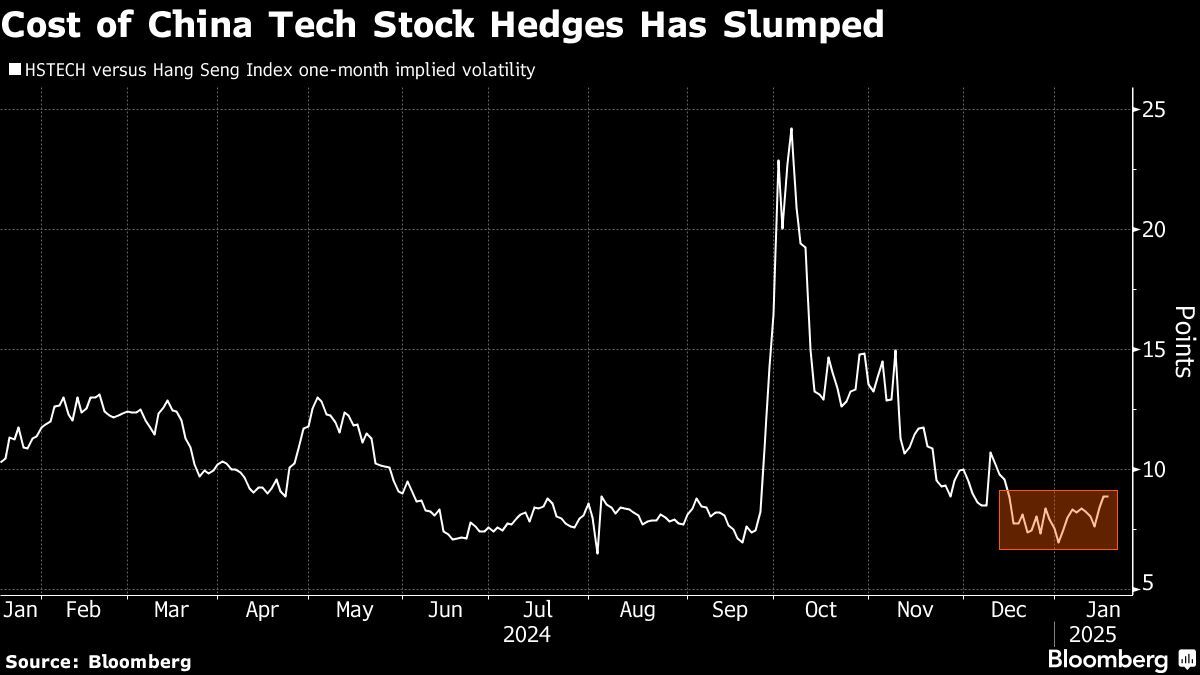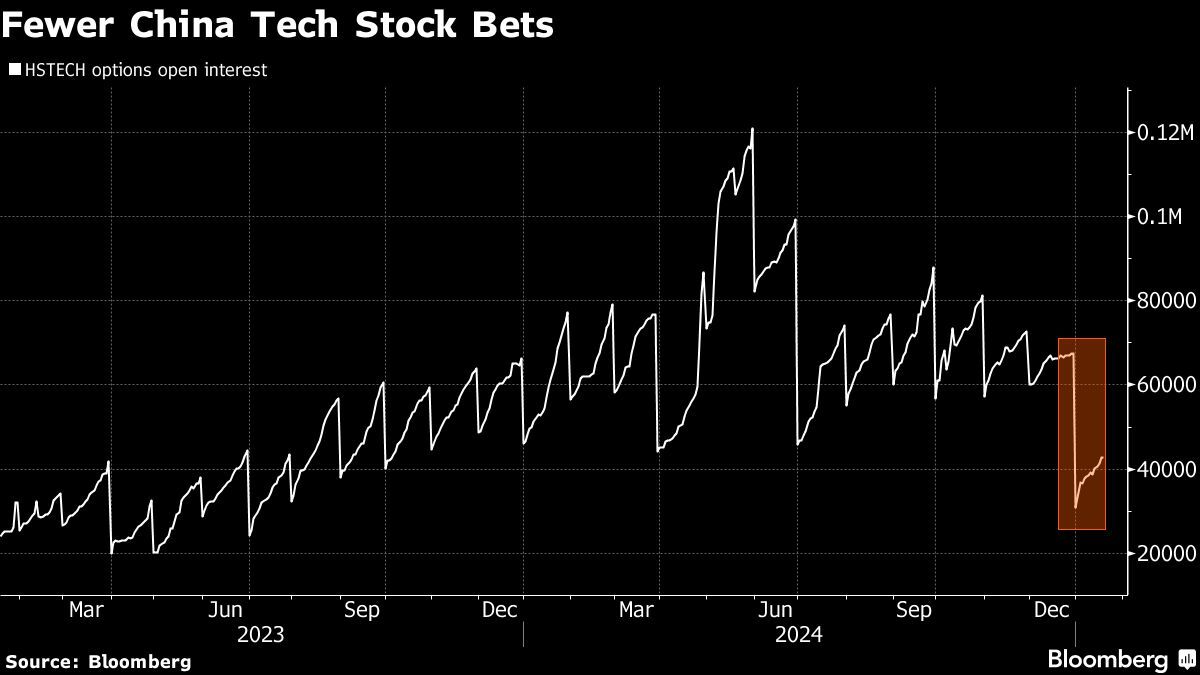
(Jan 20): With Donald Trump about to start a second term in the White House, investors around the globe are bracing for big changes in trade policies. One sector they are zeroing in on is China tech, and the sentiment is: wait and see.
The cost of protecting against swings in the Hang Seng Tech Index is hovering around a four-month low relative to the broader Hang Seng Index. At the same time, the number of total options outstanding on the gauge, which tracks companies including Tencent Holdings Ltd and Alibaba Group Holding Ltd, fell to the lowest since July 2023 at the most recent monthly expiration on Dec 31.
Chinese tech stocks, left behind in the frenzy over artificial intelligence, posted unimpressive earnings in the last season, and the index tracking those traded in Hong Kong has lost 15% from a two-year high in October. Now many investors are waiting to see whether Trump will act after he threatened to impose tariffs of around 60% on a wide range of Chinese goods, while questions remain about the impact of Beijing’s latest stimulus measures on the economy.
“Traders are not making outsized bets as they deem the risk/reward ratio not attractive enough given how complex it is to calculate US-China geopolitics outcomes and the timing, size and impact of any China stimulus,” said Han Piow Liew, a fund manager at Maitri Asset Management Pte Ltd. “Longer-term fundamental investors are comfortable with their current HSTECH positions, and are not overly aggressively buying downside protection.”
The spread in one-month implied volatility for the Hang Seng Tech gauge — also known by its ticker HSTECH — relative to the Hang Seng Index has dropped to about 10 points from a high of more than 24 points in October, when enthusiasm over China’s stimulus vows sent options prices soaring. It fell as low as seven earlier this month, data compiled by Bloomberg showed.
The number of options outstanding on the tech index slumped to fewer than 31,000 contracts following the December expiration and stood at around 43,000 as of last Friday's close, compared with a record high of more than 120,000 in May.
Overall options trading in Hong Kong has increased this month to almost 875,000 contracts daily, up from about 810,000 last January, according to data from the city’s exchange through last Friday. But the Hang Seng Tech index is lagging behind, with volume down to fewer than 2,000 options daily from more than 4,100 in the first month of 2024. Its weekly contracts, introduced in September, traded fewer than 500 times each day on average this January.
While Chinese stimulus hopes have eased since the October euphoria, US policies towards the nation — including the surprise blacklisting this month of Tencent — have weighed on investor sentiment. Companies in the tech gauge now trade for about 15 times estimated earnings for the 12 months, more than one-fifth below the three-year average, data compiled by Bloomberg showed. That’s even after the index climbed for five straight days, closing on Monday at its highest level in more than a month.
“Investors are likely taking a wait-and-see mode as they await the potential tariff measures to be announced by President Trump,” said Jason Lui, the head of Asia-Pacific equity and derivatives strategy at BNP Paribas SA, adding that the limited demand to express strong directional views has dragged down the HSTECH’s implied volatility.
Uploaded by Tham Yek Lee


